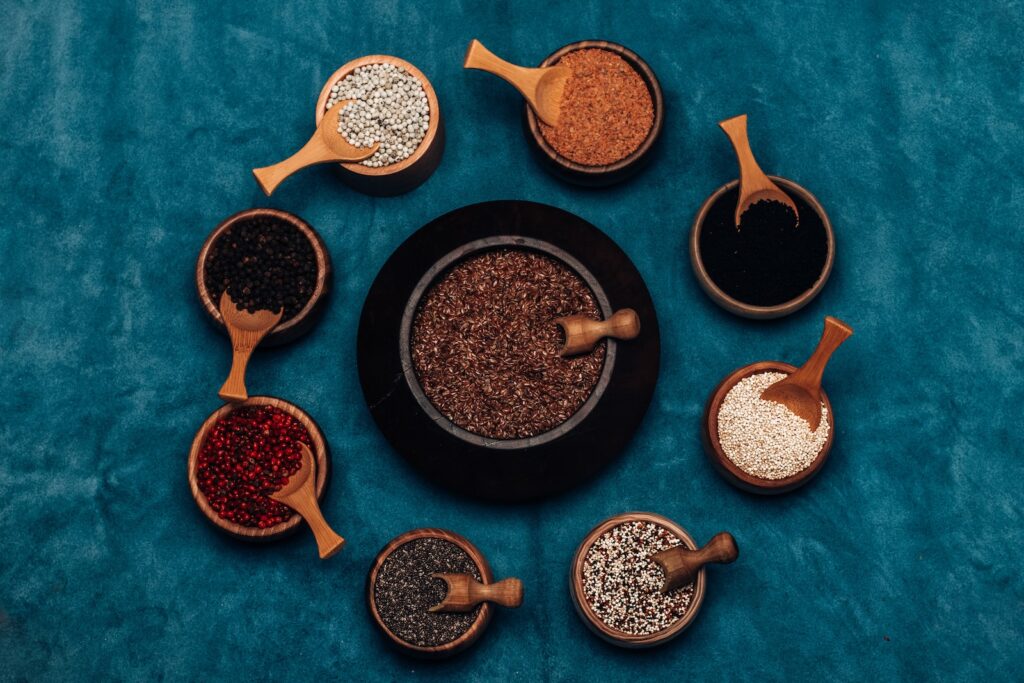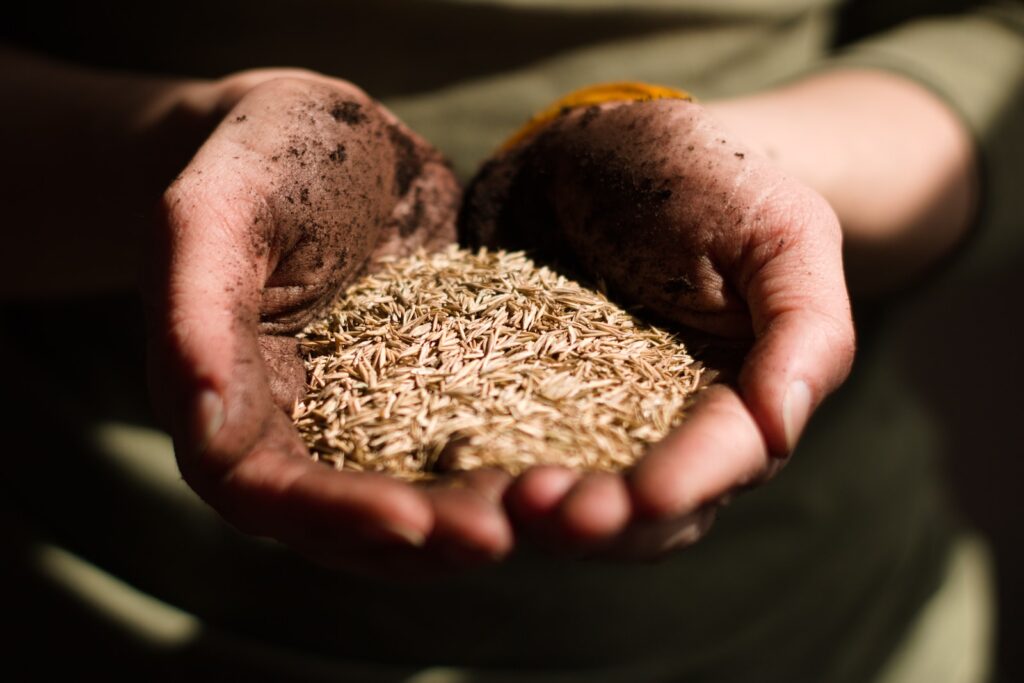Hydroponics is an increasingly popular form of gardening that involves growing plants without soil. Instead, plants are grown in a nutrient-rich water solution, supplying them with all the necessary elements that they need to grow and thrive. Hydroponics is a great way to get a garden started without the need for a large amount of space or soil. While hydroponics gardens are easy to set up, they require careful selection of the right seeds to get the best results. In this article, we will discuss the best seeds for hydroponics and how to choose the right ones for your garden.
The Best Seeds For Hydroponic Gardening
The best seeds for hydroponic gardening depend on your specific goals and the type of hydroponic system you are using. Generally speaking, fast-growing, easy to care for plants such as tomatoes, peppers, cucumbers, lettuces, and herbs are great choices. If you are using a deep water culture or NFT system, consider using plants that don’t have large root systems such as strawberries, watercress, and kale. For an aeroponic system, plants with large root systems such as beans, squash, and corn can be grown successfully. For all systems, it is important to choose seeds that are disease-resistant and suited to the climate you live in.
- Lettuce
- Tomatoes
- Peppers
- Cucumbers
- Watermelons
- Herbs
- Kale
- Spinach
- Swiss Chard
- Radishes
It is also important to use seeds that are labeled “hydroponic” or “organic”, as these are specifically designed for hydroponic systems. Organic seeds are free of chemical treatments and are best for producing healthy plants with higher yields. Finally, when selecting your seeds, make sure to read the package instructions carefully to ensure that you are planting them at the right time and in the right way to get the best results. By selecting the right seeds, you can produce healthy, high-yielding plants in your hydroponic system.

What are the Best Seeds for Hydroponics?
When it comes to hydroponics, the best seeds are those that require less maintenance and produce the most bountiful harvests. Some of the best seeds for hydroponics include lettuce, tomatoes, peppers, cucumbers, and herbs. These are some of the easiest plants to grow in a hydroponic system, and they all provide an abundance of produce.
Lettuce
Lettuce is a great choice for hydroponics gardens because it is easy to grow and requires minimal maintenance. It is also highly productive, with many varieties of lettuce producing multiple harvests throughout the growing season. Lettuce is a great choice for those who are just starting out with hydroponics and are looking for an easy plant to get their garden started.
Types of Lettuce
There are many different types of lettuce available for hydroponics gardens, including iceberg, romaine, butterhead, red leaf, and green leaf. All of these varieties can be grown in a hydroponic system and will yield a large harvest.
Lettuce Growing Tips
When growing lettuce in a hydroponic system, it is important to use a nutrient-rich solution and to keep the temperature of the water between 65-75°F. It is also important to keep the lettuce well-ventilated, as it is prone to mildew and rot if it is not kept in an area with good air circulation.
Tomatoes
Tomatoes are another popular choice for hydroponic gardens, as they are highly productive and easy to grow. Tomatoes can be grown in a variety of systems, including deep water culture, ebb and flow, and aeroponic systems. They are also easy to care for and require minimal maintenance.
Types of Tomatoes
When it comes to tomatoes, there are many different varieties available for hydroponics gardens. Some of the most popular varieties include cherry, beefsteak, Roma, and heirloom tomatoes. All of these varieties can be grown in hydroponic systems and will produce large harvests.
Tomato Growing Tips
When growing tomatoes in a hydroponic system, it is important to use a nutrient-rich solution and to keep the temperature of the water between 65-75°F. Tomatoes also need to be kept in an area with good air circulation and should be harvested when they are ripe.
Peppers
Peppers are a great choice for hydroponics gardens, as they are highly productive and easy to grow. Peppers can be grown in a variety of systems, including deep water culture, ebb and flow, and aeroponic systems.
Types of Peppers
When it comes to peppers, there are many different varieties available for hydroponics gardens. Some of the most popular varieties include jalapeno, bell, habanero, and cayenne peppers. All of these varieties can be grown in hydroponic systems and will produce large harvests.
Pepper Growing Tips
When growing peppers in a hydroponic system, it is important to use a nutrient-rich solution and to keep the temperature of the water between 65-75°F. Peppers also need to be kept in an area with good air circulation and should be harvested when they are ripe.
Cucumbers
Cucumbers are another great choice for hydroponic gardens, as they are highly productive and easy to grow. Cucumbers can be grown in a variety of systems, including deep water culture, ebb and flow, and aeroponic systems.
Types of Cucumbers
When it comes to cucumbers, there are many different varieties available for hydroponics gardens. Some of the most popular varieties include pickling, English, and Armenian cucumbers. All of these varieties can be grown in hydroponic systems and will produce large harvests.
Cucumber Growing Tips
When growing cucumbers in a hydroponic system, it is important to use a nutrient-rich solution and to keep the temperature of the water between 65-75°F. Cucumbers also need to be kept in an area with good air circulation and should be harvested when they are ripe.
Herbs
Herbs are another great choice for hydroponics gardens, as they are highly productive and easy to grow. Herbs can be grown in a variety of systems, including deep water culture, ebb and flow, and aeroponic systems.
Types of Herbs
When it comes to herbs, there are many different varieties available for hydroponics gardens. Some of the most popular varieties include basil, oregano, thyme, and rosemary. All of these varieties can be grown in hydroponic systems and will produce large harvests.
Herb Growing Tips
When growing herbs in a hydroponic system, it is important to use a nutrient-rich solution and to keep the temperature of the water between 65-75°F. Herbs also need to be kept in an area with good air circulation and should be harvested when they are ripe.

How to Choose the Right Seeds for Hydroponics
Now that you know some of the best seeds for hydroponics, it’s time to learn how to choose the right ones for your garden. When selecting the seeds for your hydroponic garden, it is important to consider the amount of space you have available, the type of hydroponic system you are using, and the amount of time you have to devote to caring for your plants.
Consider the Amount of Space Available
When selecting the seeds for your hydroponic garden, it is important to consider the amount of space you have available. If you have a small space, you may want to choose smaller plants such as lettuce, tomatoes, and herbs. If you have a larger space, you may want to choose larger plants such as peppers and cucumbers.
Choose Plants That Fit Your System
When selecting the seeds for your hydroponic garden, it is important to consider the type of system you are using. Different types of plants require different systems, and you should choose plants that are compatible with your system. For example, tomatoes and peppers are best grown in an ebb and flow system, while lettuces and herbs are best grown in a deep water culture system.
Factor in the Amount of Time You Have to Spend on Maintenance
When selecting the seeds for your hydroponic garden, it is also important to factor in the amount of time you have to devote to caring for your plants. Some plants require more maintenance than others, so if you don’t have a lot of time to devote to your garden, you may want to choose plants that are easier to maintain.
Conclusion
Choosing the right seeds for your hydroponic garden is essential for getting the best results. When selecting the seeds for your garden, it is important to consider the amount of space you have available, the type of system you are using, and the amount of time you have to devote to caring for your plants. With careful selection, you can ensure that your hydroponic garden is both productive and easy to maintain.
